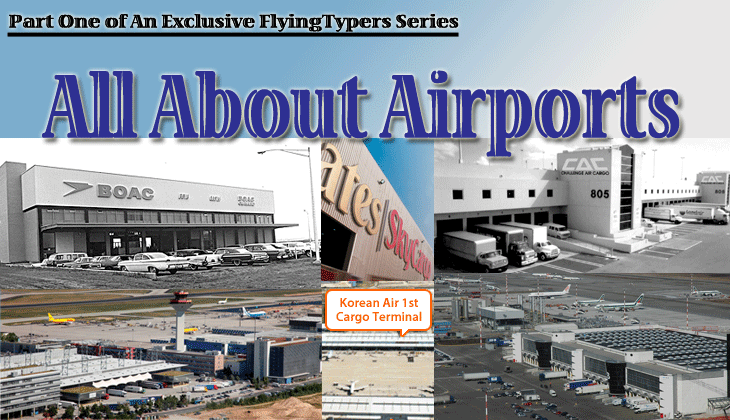

Hartsfield-Jackson
Atlanta International Airport (ATL) is the world’s
most traveled airport, welcoming more than 100 million
passengers in 2015, the most of any other airport
in a single year. However,
from a cargo standpoint, ATL ranks just 13th nationwide
and 33rd internationally.
Hartsfield-Jackson has
seen year-over-year gains in the amount of cargo traffic.
But never one to rest on its laurels, the city-owned
ATL is looking to break into the Top 5 of the nation’s
leading cargo airports—a goal set by Atlanta
Mayor Kasim Reed. To put that into perspective, ATL
handled 600,000 metric tons of cargo in 2015. To achieve
a ranking of 5th nationally, the Airport will need
to triple its cargo volume to almost 2 million metric
tons annually.
“Air cargo is
recognized by the City’s leaders as a primary
contributor to economic development due to Hartsfield-Jackson
Atlanta International Airport’s important role
in the global supply chain,” said Elliott Paige,
ATL’s air service development manager.
Aggressive marketing
efforts are underway, but ATL leaders also recognized
that existing infrastructure was insufficient to handle
the growth. So ATL began a brick-and-mortar expansion—part
of the Airport’s capital plan ATLNext, a 20-year
blueprint for development—which included additional
state-of-the-art cargo facilities, airside ramps,
taxiways, landside vehicle parking, and underground
utilities.
The Master Plan calls
for 1,000,000-square feet of new cargo facilities
by 2030, but the schedule is being accelerated to
achieve new cargo goals. In fact, work has begun ahead
of schedule to relocate the existing feeder road and
ground will break this summer to prepare for two new
cargo buildings totaling approximately 350,000 square
feet.
Challenges
The
plan aims to address persistent Airport trucking challenges
(see photos). They include the following:
- Even before the Mayor’s
directive to boost cargo activity at Hartsfield-Jackson,
truck traffic to and from ATL created gridlock
on neighboring roads. At peak hours, tractor-trailers
often backed up to the interstate while blocking
driveways and side streets. Airport employees
have faced delays leaving from and arriving to
work and extremely long wait times, up to two
hours or more at peak activity, created costly
trucking delays.
- Drivers were self-selecting
which dock door to use, creating confusion and
triggering arguments.
- Clients pay a premium for air
transport because it’s fast and vital for
time-sensitive shipments. Shipping delays on the
ground hamper their business.
- Independent drivers and trucking
companies avoid ATL. As a result, forwarders have
been forced to pay a premium to move shipments.
Solutions
In
light of growth projections, ATL looked to an immediate
truck staging solution. Initially, the airport considered
using an existing contractor parking lot, but it was
small and provided only a short-term solution. So
early in the process, the Airport decided to create
a distinct truck staging system that would not only
eliminate congestion, but also differentiate Hartsfield-Jackson
in the industry and move ATL closer to its desired
cargo goals.
While City Council
approved construction of a centralized parking facility,
Airport management met with cargo handlers and airlines.
Their input helped shape the design of a superior
system that will expedite delivery and pickup, reduce
costs, and provide utilization metrics that will optimize
operations and increase profits.
After researching various
models, Airport officials determined that the system
used by Costco was the most compatible with ATL airport
operations. After construction and installation are
complete, the truck staging solution will include
the following:
- A dedicated, secured staging
lot with 40-60 spaces and check-in booth. The
lot is being centrally located between existing
cargo warehouses and the new development scheduled
for occupancy in 2018.
- 100 percent participation by
the cargo handlers and airlines to guarantee success
of the program.
- Assigned matching of trucks
with available docks.
- A computerized system using
individual dock sensors with internal alerts (red
and green lights to indicate availability). There
are 32 docks per existing building (128 total),
and each will be equipped with sensors. The system
has metric reporting capabilities.
- Communication to ensure orderly
pickup and delivery.
How
Will It Work?
Freight
forwarders contract with truck drivers to pick up
from or deliver to cargo facilities at Hartsfield-Jackson.
Under the new system, signage will direct trucks to
the staging lot for dock assignment. No truck will
be allowed to bypass the process by self-assigning,
otherwise drivers would refuse to use the lot if they
thought a competitor might jump ahead at the warehouse.
It’s important to note that handlers and airlines
are required, through terms of their lease, to adhere
to the procedure by turning away truckers who try
to bypass. In other words, the system requires 100
percent participation.
As drivers enter the
lot, an attendant will log their information and determine
which handler they are scheduled to see. The information
will then be relayed to the handler and used to match
dock availability. When a dock opens, the trucker
will be notified via cellphone. It’s worth noting
that the system is capable of assigning expedited
and priority shipments ahead in the queue.
Construction of the
lot is complete, and operations are expected to begin
soon. Once initial benchmarking is finished, the ATL
may add more amenities, including restrooms, vending
machines, or food trucks.
Looking
ahead
Air cargo creates more
than 27,000 jobs in Georgia and generates more than
$6.7 million in revenue for metro Atlanta. Recently,
Hartsfield-Jackson has made impressive strides to
boost its cargo business.
“We had a terrific
start in 2015,” said Vivica Brown, ATL’s
Assistant General Manager for Commercial Development.
“But we have much more to do, and we are excited
to hit the ground running to reach even higher levels
of success.”
Robin
Boyd
Airport Real Estate Manager
Hartsfield-Jackson Atlanta International Airport




 Vol
15. No. 42
Vol
15. No. 42 Vol
15. No. 43
Vol
15. No. 43